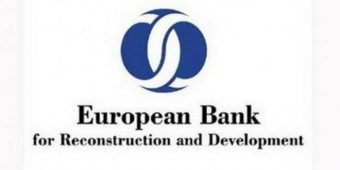 A new Memorandum of Understanding to enhance energy cooperation between the EU and the European Bank for Reconstruction and Development (EBRD) has been signed in London last week by EU Commissioner Arias Cañete and EBRD President Chakrabarti.
A new Memorandum of Understanding to enhance energy cooperation between the EU and the European Bank for Reconstruction and Development (EBRD) has been signed in London last week by EU Commissioner Arias Cañete and EBRD President Chakrabarti.
The new agreement will broaden the existing cooperation to a significant number of areas, including scaling-up energy efficiency financing, increasing investment in renewable energy, developing smart grids, and enhancing our resilience to climate change. The Memorandum will also contribute to enhance Europe’s energy security by further promoting the interconnectivity of our energy systems, and by promoting nuclear safety and decommissioning. It will extend cooperation to related areas like regulatory and financing criteria issues. Until now, cooperation focused mainly on energy security, energy efficiency and nuclear decommissioning.
EU Commissioner for Energy and Climate Action, Miguel Arias Cañete, said: “The new MoU comes at the best possible moment: enhancing the bilateral cooperation between the EBRD and the Commission will help us make the most of each other’s expertise and support our actions to promote investment in key areas like energy efficiency, renewables and infrastructure.”
EBRD President Sir Suma Chakrabarti said: “I am delighted to sign this MOU, which will establish even closer relations between the EBRD and the EU on a range of energy issues. The EBRD and the EU already collaborate closely, but this MoU will help us to take our co-operation further, including scaling-up energy efficiency financing, increased investment in renewable energy and the development of smart grids.”
The new Memorandum of Understanding replaces a previous document signed in 2007. It will be implemented through an enhanced coordination of policies and activities and through the optimisation of financing synergies.
The EU is one of the largest donors to EBRD green projects and has contributed more than €290 million in support of the Bank’s green ventures since 2006. The EBRD’s green investments have reached a value of €20 billion in over 1,000 projects during this period. This has helped to reduce greenhouse gas emissions by an estimated 80 million tonnes each year, which is equivalent to the annual GHG emissions of Romania.
Source: ec.europa.eu


